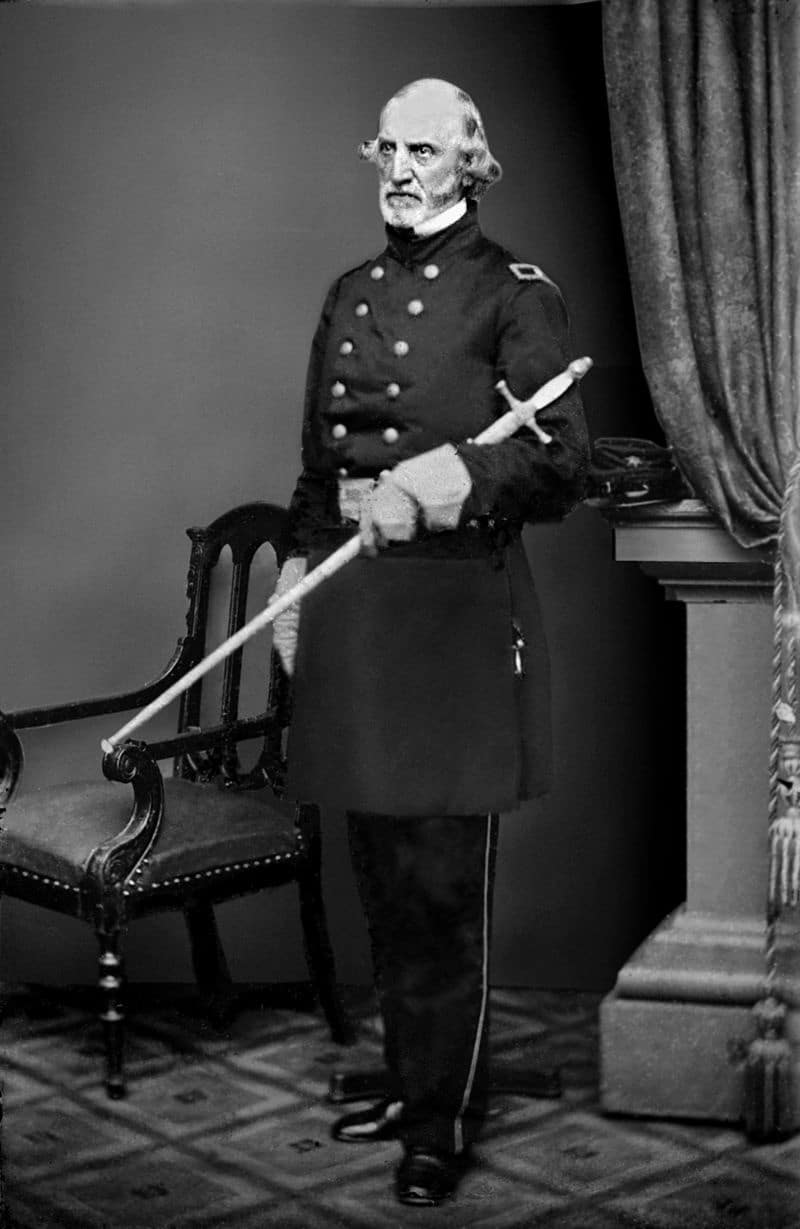Brigadier General Daniel Tyler was born in Brooklyn, Connecticut, with deep New England roots. His father, Daniel Tyler III, was a veteran of the Battle of Bunker Hill, and Sarah Edwards Tyler was the granddaughter of Jonathan Edwards, who is given credit for beginning the First Great Awakening.

Daniel Tyler married Emily Lee of Norwich, Connecticut, on May 18, 1832. They had five children: Alfred Lee, Gertrude, Edmund Leighton, Mary Law, and Augustus Cleveland. Gertrude was the mother of Edith Carow Roosevelt wife of President Theodore Roosevelt.
Tyler resigned his commission in the United States Army in May 1834 and became an iron manufacturer, developing blast furnaces and rolling mills. He was the president of the Norwich and Worcester Railroad and, for five years, the Macon and Western Railroad in Georgia. Later, Tyler served as the superintending engineer of the Dauphin and Susquehanna Railroad and the affiliated Allentown Railroad and became president and engineer when the former was reorganized as the Schuylkill and Susquehanna Railroad. He had greater success in the railroad industry than he had in the manufacture of pig iron.
Civil War
When the Civil War broke out, Tyler enlisted in the Union forces. He served as a brigadier general for the Connecticut militia during the First Battle of Bull Run. He did not have much success at the battle and, was assigned a large portion of the blame and was mustered out of the army on August 11, 1861.
He was again given a brigadier general commission in 1862 and was sent out west to help command the Army of Mississippi. He saw some success in the Siege of Corinth but was again met with defeat at the Battle of Harpers Ferry when the Union army surrendered to General Stonewall Jackson.
The Union soldiers, who were paroled after their capture, were sent to Camp Douglas, which already had been used as a prisoner-of-war camp for Confederates captured at the Battle of Fort Donelson, for temporary detention. Under the terms of the prisoner exchanged cartel than in effect, they had to await formal exchange before they could leave the camp. These 8,000 paroled Union soldiers began to arrive at Camp Douglas on September 28, 1862, and Tyler took temporary command of the camp. Under Tyler's command, these Union soldiers had to live under similar conditions to those endured by the Confederate prisoners from Fort Donelson. In fact, the conditions were worse because the camp had become filthy and even more run down during its occupancy by the prisoners. The parolees had a two-month stay at the camp. Tyler was relieved as commander on November 20, 1862. Later, Tyler commanded at Baltimore, at Harper's Ferry between June 13, 1863, and July 3, 1864, and finally at the District of Delaware between July 3, 1863 and January 19, 1864.
Later Years
After the war, Brigadier General Daniel Tyler returned to civilian life and became a railroad mogul. He moved to Alabama and founded the town of Anniston, named for his daughter-in-law. He established an iron manufacturing company and was president of the Mobile and Montgomery Railroad.
Daniel Tyler died while visiting New York City on November 30, 1882. He is buried in Hillside Cemetery in Anniston, Alabama.
